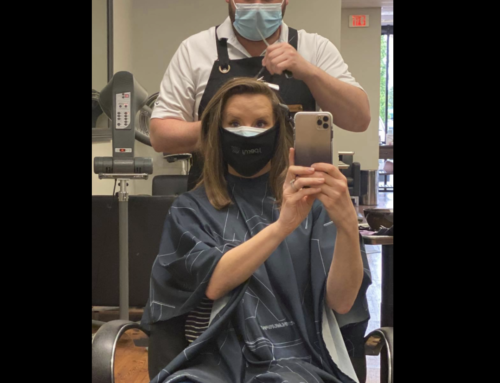It’s that time of year when we are all outdoors more and many times that can mean more bugs and bites. But did you know that ticks can still be active and bite even in the winter season? Dr. George Monks says, “As long as there’s not snow on top of the tick they can bite. Now certainly they are more active during certain times of the year. Especially around April, May, June…right now. But it’s false that in cooler weather they can’t bite you. They absolutely can be active, especially the adult ticks during the wintertime as long as there’s not ice or snow on top of them they’ll do fine. They’ve even done some studies where they’ve buried ticks in snow, and it doesn’t kill them. They just kind of live through it. They can just survive.”
Let’s back up. A tick bite can be dangerous and lead to a lot of pain, suffering, and even death. Dr. George Monks says he knows that all too well. He’s watched his patients suffer and learned an Oklahoma Game Ranger who taught his Boy Scout Troup a hunter safety course, died of Lyme Disease. He wanted to do something, and that’s part of why he created ‘test my tick’ with his wife, Rachel.
Now, thanks to their nonprofit, the Tick-Borne Illness Society, and a grant from the Oklahoma State Medical Association Foundation, those tests are free for anyone living in Oklahoma(through July 2020). If you live out of state, it will only cost you $50.00, but you can save $5.00 If you buy their kit.
“For The free testing service you don’t need any kit if you’re an Oklahoma resident, just save it in a Ziploc bag, go to testmytick.com and click on ‘order tick test’ then use the coupon code ‘prepaid’ and it will walk you through a screen that captures info.” Explains Monks.
And they will take any kind of dead tick. Ticks missing legs, smashed ticks, half a tick, they all have DNA, and that’s what they need.
Oklahoma Residents:
Residents in all other states:
He also says you’ll get answers quickly, “Once they send it in they’ll receive an email from the lab that shows a picture. We take a Dorsal and Ventral view picture which means from the top and from the bottom of the tick and then about a day later or sometimes even the same day they will do the testing. Once the lab receives it that day or the next day, they’ll send them the results by email, and they’ll tell them if the tick has a disease or not.”
Having that information could be a game-changer. “It makes a huge difference because it can eliminate the suffering and defeat the infection, the quicker you can get to it.”
So, you’ll know if the tick that bit you is a disease-carrying tick. You’ll then be able to talk with your physician about that and adjust any treatments that may be needed. But there’s also a bigger picture, “All the nonpersonal information is saved into a publicly available database that we can learn more about tick and tick-borne illness. So, any scientist, researcher, or physician that wants to learn more about ticks, can access that data. So not only is it a great service to people to know, you know hey I want peace of mind. Did that tick that I removed from my body, was it carrying disease or not. So not only is it great to give you that peace mind, but it’s also great because its advancing science. So the more ticks that we can get the more successful this program will be.”

Dr. Monks says another example of how the database could help future research has to do with species discovery, “For instance, there is an invasive species of tick called the Longhorn tick that carry a number of invasive diseases and that has been found in Benton County Arkansas. It’ hasn’t been found in Oklahoma yet but a program like this could help identify invasive species of ticks as well because one of the things that we do when the tick arrives at the lab is identify the species and knowing what diseases they are carrying and how often they are carrying those disease is very helpful to us.”
 You can see Dr. Monks passion for how this could all help people live longer and healthier lives. He seems to genuinely want to help people and find a way to make changes that could help anyone facing tickborne illness. SO, If you come across a tick even if you found it on an animal, or on the ground, send it in because they want its DNA.
You can see Dr. Monks passion for how this could all help people live longer and healthier lives. He seems to genuinely want to help people and find a way to make changes that could help anyone facing tickborne illness. SO, If you come across a tick even if you found it on an animal, or on the ground, send it in because they want its DNA.






